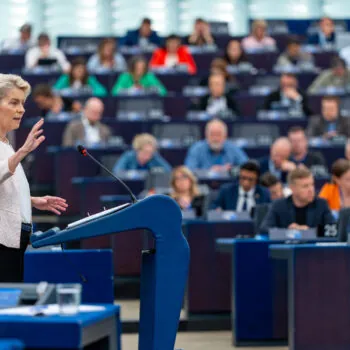A report released today by E3G “Why energy efficiency needs to have priority as part of the Energiewende” urges the new German Government to reset the Energiewende debate to focus on what really matters: delivering the best value investments possible for Germany. The report finds that in 2011, €81.2 billion – equal to 3.2% of German GDP – was spent on fossil fuel imports, an increase of 50% on 2000 levels. And because price increases are driven by global rises in demand for energy, they are likely to be permanent.
Sabrina Schulz the Head of E3G’s Berlin office, said today,
“The fight over the costs of delivering the Energiewende is only part of the story. Almost two-thirds of household energy costs are related to heating and hot water – staples for a healthy lifestyle.”
“Tackling these areas through improved energy efficiency will reduce costs and cut carbon emissions, and ensure continued confidence in the Energiewende amongst the population.”
E3G finds that for the 12 million German homes that use heating oil to provide warmth, energy costs have tripled in the last 20 years. Similarly the 19 million households that rely on natural gas have seen a doubling of energy costs. The remainder that rely on electricity have seen energy bills increase by 75%. This is having a negative impact on living standards. According to the latest data available, 13.8% of German households are in ‘energy poverty’, that is they spend more than 10% of their income on energy. In a more recent study of 15 European countries conducted in 2011, Germany ranked nine out of 15 for the proportion of the population who say they are unable to afford to adequately heat their home.
E3G suggests that that a broader strategic review of the most pragmatic way of delivering the original Energiekonzept’s long-term objectives needs to be reviewed and widened to look at how energy can be used more effectively across the economy.
The report recommends:
- Broadening the debate to include focus on the role of demand side resources (demand management, demand response and distributed generation) in reducing costs.
- Including a focus on improving efficiency in buildings. With just under half of buildings dating from before the introduction of the first Heat Insulation Act in 1977, a step change in delivering energy efficiency is needed.
Christian Noll of DENEFFF notes
“Energy efficiency has to be become the strategic corrective factor for the Energiewende to make it ecologically sound, socially just and economically affordable. An energy policy which is based on the meaningless and expensive construction of new transmission lines instead of stopping the gigantic waste of energy cannot create a secure energy future.”
For further information contact Sabrina Schulz sabrina.schulz@e3g.org



